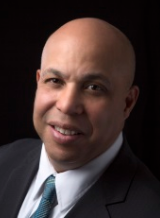
State: Calif.
Duff: The Proposition 22 Gig Hustle: Ask Not for Whom the Bell Tolls: [2020-11-18]
I have arrived at the point in my torts course when we discuss the distinction between “employees” and “independent contractors.”

Michael C. Duff
The first thing I will be asking my students is what happens if a California Uber driver negligently, grossly negligently or even intentionally runs into their car. By this point in the course, they have a working understanding of principles of vicarious liability, so they will tell me they would sue both the Uber driver and Uber itself.
I’ll explain that deregulating the ride-share sector in California, after an unprecedented $200 million corporate campaign (ultimately financed by venture capitalists), means not only that a broad swath of drivers is not covered by employee statutes but also that tort liability has been severely compromised, which sounds like a great idea until someone you happen to know has been rendered quadriplegic by an assetless Uber driver.
I will explain that under restatement agency principles, a “principal” is almost never liable for the torts of its “independent contractor” (though I suspect that the gig economy will now force more and more exceptions to the rule).
I will explain that they will have a lot less writing to do on their torts final examination if I give them a fact pattern that has an Uber driver slamming into another driver. They may be able to argue that the hypothetical plaintiff would not pursue the claim because the negligent driver will not have pockets deep enough to finance the litigation.
I might let them get away with this analysis: no need to discuss pesky issues of respondeat superior, duty, breach, causation and harm. No need to discuss compensatory damages. Perhaps they could discuss cost-shifting for extra credit (after all, someone will pay — a constant refrain in my torts class).
When discussing the Proposition 22 development in my workers’ compensation course next semester, I will explain distinctions among the different employee tests around the country and point out that there is no reason to think that corporate deregulation campaigns will stop in California or with any particular job function (why stop at drivers?) or with any particular body of law (why not include workers’ compensation?).
How much corporate money would it take, for example, to engineer a campaign to classify half the workforces in Oklahoma or Tennessee as non-employees? How much corporate money would it take to persuade voters in Indiana that workers’ compensation is “so 20th century”? (No need for pesky workers’ compensation insurance because there is nothing to insure: no carriers, no lawyers, no workers’ compensation boards).
Much less than $200 million, I would imagine. You really don’t have to be a weatherman to know which way the wind is blowing (everyone always complains about the weather but nobody does anything about it). Just keep your eye on the ball as you see some of the chief gig-hustlers scurrying over to the Biden transition team.
Of course, we all know where this ends: The law of liability-imposing agency has its roots in the Roman law of two millennia ago, for God’s sake. And for all the known reasons (your liberty is limited by my security). The horrific “accident” that is a bridge too far always comes, but what a tragedy that we must (apparently) fight all these battles again. And some will claim they were not warned.
Michael C. Duff is associate dean for student programs and external relations, and is professor of law, at the University of Wyoming College of Law. This entry is republished from the Workers' Compensation Law Professors blog, with permission.